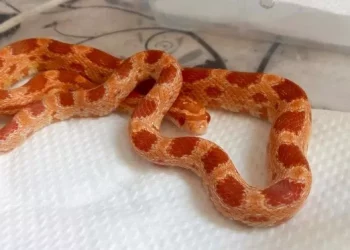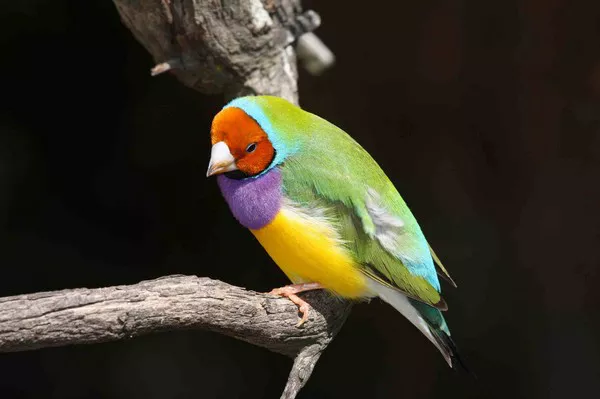If you’re considering adopting a small furry friend, two of the most popular choices are guinea pigs and hamsters. These lovable creatures can bring joy, companionship, and a sense of responsibility to any household. However, before bringing one home, it’s important to understand the differences between the two, including their lifespans.
One of the key factors in deciding which pet is right for you is understanding how long they are likely to live. After all, the commitment to a pet is not just about feeding and providing shelter but also about providing companionship for their entire life.
In this article, we will compare the lifespans of guinea pigs and hamsters and examine other factors related to their care and health that might affect how long they live. Whether you’re a first-time pet owner or a seasoned animal lover, understanding their longevity and needs can help you provide the best care possible.
Lifespan of Guinea Pigs vs Hamsters
Guinea Pigs
Guinea pigs, also known as cavies, are medium-sized rodents with a friendly, social nature. These animals are native to the Andes mountains in South America and have been domesticated for thousands of years. Guinea pigs typically live for 4 to 6 years, although with optimal care, some can live up to 8 years. There have even been reports of guinea pigs living into their early teens, though this is less common.
Several factors influence the lifespan of a guinea pig:
Diet: A guinea pig’s diet plays a critical role in its health. These animals are herbivores and require a diet rich in hay, fresh vegetables, and vitamin C. A lack of proper nutrition can lead to health issues that can shorten their lives.
Environment: Guinea pigs thrive in clean, spacious enclosures where they have room to exercise and socialize. Poor living conditions can lead to stress, which in turn can affect their health and longevity.
Healthcare: Regular veterinary check-ups are important for preventing and treating illnesses that might shorten their lifespan. Some guinea pigs may develop conditions like scurvy, respiratory issues, or obesity, all of which can be managed with proper care.
Hamsters
Hamsters, on the other hand, are much smaller than guinea pigs and come in a variety of breeds, including Syrian, dwarf, and Roborovski hamsters. Their lifespan is considerably shorter than that of guinea pigs. On average, hamsters live 2 to 3 years. Some hamsters can live a bit longer, up to 4 years, but this is relatively rare.
The lifespan of a hamster can be affected by the following factors:
Diet: Hamsters are omnivores, which means they require both plant-based foods and animal protein. A balanced diet of seeds, vegetables, fruits, and small amounts of protein is essential. Overfeeding or underfeeding certain nutrients can lead to obesity, diabetes, or other health complications, reducing their life expectancy.
Environment: Hamsters are solitary animals that enjoy burrowing and running. Providing them with a suitable cage with bedding and a wheel for exercise is crucial for their well-being. Stress and inadequate living conditions can lead to health problems.
Healthcare: Hamsters generally require less veterinary care than guinea pigs due to their shorter lifespan. However, regular health checks are still essential to ensure they’re free of parasites and illnesses. Overweight hamsters or those with poor dental health can face shortened lives.
Which Lives Longer: Guinea Pigs or Hamsters?
In terms of lifespan, guinea pigs generally live significantly longer than hamsters. While guinea pigs can live anywhere from 4 to 8 years with the right care, hamsters usually live only 2 to 3 years. For pet owners looking for a companion that lasts longer, guinea pigs are the better option.
However, there are various factors that influence each pet’s longevity, including genetics, diet, exercise, and living conditions. As such, the care you provide will directly impact how long your guinea pig or hamster lives.
Other Factors That Affect Lifespan
Beyond diet and environment, several other factors can affect how long a guinea pig or hamster lives. Below are some important considerations.
Genetics
Genetics plays a significant role in the lifespan of both guinea pigs and hamsters. Some breeds or genetic lines may have a predisposition to certain health conditions that can shorten their lives. For example, some guinea pigs may be more prone to heart disease, while certain hamster breeds may have genetic disorders related to vision or bone structure.
Unfortunately, you can’t change your pet’s genetics, but knowing your pet’s breed and family history can help you monitor them for any potential health issues.
Social Needs
Guinea pigs are social animals that thrive in groups, so they are best kept in pairs or small groups, provided that their cage is large enough. Having a companion helps reduce stress, which can improve their overall health and increase their lifespan. However, it’s essential to ensure that the guinea pigs get along well. If kept alone, guinea pigs can become lonely, which can lead to depression and health issues.
In contrast, hamsters are solitary creatures and should be kept alone, as they may become territorial and aggressive toward other hamsters. Keeping more than one hamster together can lead to fighting and injury, which can negatively affect their health and lifespan.
Activity Level
Guinea pigs are active and need plenty of space to roam and explore. A guinea pig should have a large cage or an outdoor pen, ideally with plenty of toys and tunnels for enrichment. Lack of physical activity can lead to obesity, which can reduce their lifespan and lead to a variety of other health problems.
Hamsters are very active at night and require a hamster wheel for exercise. They also enjoy burrowing and digging. However, because hamsters have much smaller cages and are solitary, they don’t need as much space to roam as guinea pigs. Still, it’s important to give them enough room to exercise and express their natural behaviors.
Stress and Mental Health
Stress can significantly impact the health and longevity of both guinea pigs and hamsters. Guinea pigs are highly sensitive to changes in their environment, such as loud noises, sudden temperature changes, or changes in their social group. Chronic stress can lead to serious health problems such as heart disease, digestive issues, or respiratory infections.
Hamsters, too, can become stressed if they are disturbed too frequently or if their cage is too small. They may develop behavioral issues, such as biting, if they are stressed or not provided with enough space. Stress can also cause health problems like weakened immune systems, making them more susceptible to illness.
Providing the Best Care to Maximize Longevity
While genetics play a role in your pet’s lifespan, providing the best possible care is essential for maximizing their longevity. Here are some tips on how to care for guinea pigs and hamsters to ensure they live long, happy lives.
For Guinea Pigs
Provide a Nutritious Diet: Guinea pigs need a diet high in vitamin C, fresh vegetables, and hay. Make sure they have access to unlimited hay, such as timothy hay, and provide fresh vegetables like bell peppers, carrots, and leafy greens. Avoid feeding them iceberg lettuce, as it lacks nutritional value.
Create a Spacious Habitat: Guinea pigs need space to move around and socialize. A cage that is at least 7.5 square feet in size is recommended for two guinea pigs. They also need a comfortable bedding material, such as paper-based bedding, to avoid respiratory issues.
Socialization: Guinea pigs are social animals and need regular interaction with humans or other guinea pigs. Spend time playing with your guinea pig and allow it to explore in a safe, enclosed area.
Regular Vet Checkups: Even if your guinea pig seems healthy, it’s a good idea to take it to the vet for regular checkups. This can help catch potential health problems early.
For Hamsters
Provide a Balanced Diet: Hamsters need a diet consisting of hamster pellets, fresh vegetables, and occasional treats like sunflower seeds or fruit. Avoid feeding them sugary foods, as hamsters can easily develop diabetes.
Create an Enriching Environment: Hamsters need a cage that includes a wheel for running, tunnels for burrowing, and bedding for nesting. Change the bedding regularly to keep the environment clean and hygienic.
Give Them Space to Roam: While hamsters can be kept in a relatively small cage, make sure they have enough room to exercise. A hamster wheel is essential for maintaining their health and preventing obesity.
Respect Their Need for Solitude: Unlike guinea pigs, hamsters are solitary creatures and should be housed alone. Give them privacy and avoid handling them too much, as this can cause stress.
Conclusion
When considering whether to adopt a guinea pig or a hamster, lifespan is an important factor. Guinea pigs generally live much longer than hamsters, typically 4 to 6 years, though they can live up to 8 years with proper care. In contrast, hamsters usually live only 2 to 3 years, with some reaching 4 years under ideal conditions.
While hamsters may not live as long as guinea pigs, they can still make wonderful pets, especially for individuals or families who are looking for a smaller, low-maintenance companion. However, if you’re seeking a pet that can provide companionship for a longer time, a guinea pig may be a better choice.
Ultimately, the lifespan of both guinea pigs and hamsters depends largely on the care they receive. By providing proper nutrition, a spacious environment, and regular veterinary care, you can help ensure that your furry friend lives a long, healthy, and happy life.
Related Topics:






















